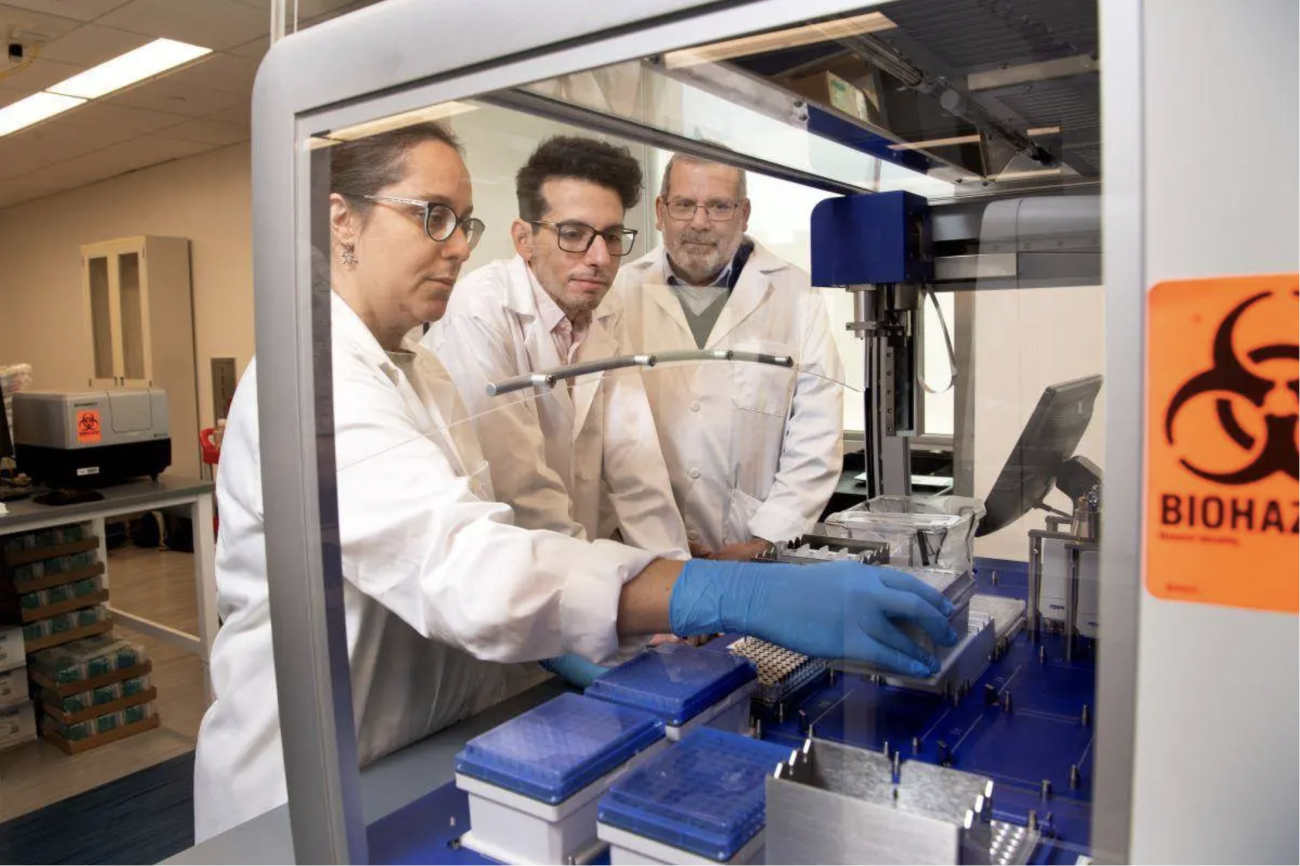Philip Santangelo wants to build a toolbox of mRNA drugs to activate or shut off specific genes to help the immune system fight cancer and other disorders.
Researchers, from left, Lorena Chaves, Jose Assumpcao, and Philip Santangelo will be part of a collaborative effort to use mRNA drugs to enhance the body’s immune response. Santangelo is leading the $24 million project supported by the federal Advanced Research Projects Agency for Health. (Photo: Jack Kearse)
President Joe Biden and the White House announced $24 million in support Aug. 23 for a team led by Georgia Tech and Emory University biomedical engineers who want to use mRNA to unlock new treatments for cancer and other chronic diseases.
Their project, called Curing the Uncurable via RNA-Encoded Immunogene Tuning (CUREIT), aims to use mRNA to essentially turn genes on or off in individual immune cells. The idea is to reverse the suppression or dysregulation of the immune system that is common in chronic diseases like cancer.
“By combining mRNA-encoded antigens with gene modulation technology, we will be able to radically enhance specific immune responses,” said Philip Santangelo, the project’s leader and a professor in the Wallace H. Coulter Department of Biomedical Engineering at Georgia Tech and Emory. “This technology, which operates transiently without modifying DNA, can offer a potential breakthrough in treating cancers, autoimmune disorders and infectious diseases.”
Latest BME News
Jo honored for his impact on science and mentorship
The department rises to the top in biomedical engineering programs for undergraduate education.
Commercialization program in Coulter BME announces project teams who will receive support to get their research to market.
Courses in the Wallace H. Coulter Department of Biomedical Engineering are being reformatted to incorporate AI and machine learning so students are prepared for a data-driven biotech sector.
Influenced by her mother's journey in engineering, Sriya Surapaneni hopes to inspire other young women in the field.
Coulter BME Professor Earns Tenure, Eyes Future of Innovation in Health and Medicine
The grant will fund the development of cutting-edge technology that could detect colorectal cancer through a simple breath test
The surgical support device landed Coulter BME its 4th consecutive win for the College of Engineering competition.








